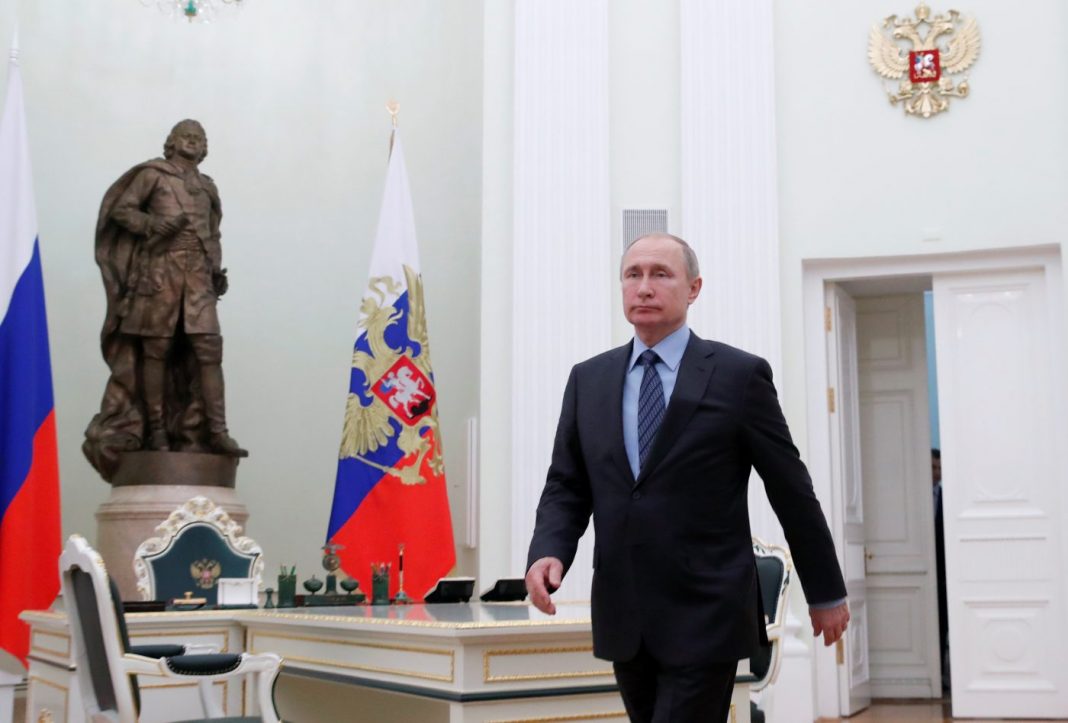The impending vote for Moldova’s head of state is a key moment in the new East-West conflict.
By Olga Lautman, for CEPA
Russia has worked tirelessly and systematically over several years to undermine Moldova’s pro-western President Maia Sandu. This campaign reaches its zenith on November 3 when the country holds its run-off vote for the head of state’s post.
Moscow’s mouthpieces have expressed disappointment that the country voted (albeit narrowly) to enshrine European Union (EU) membership in the constitution on October 20. The Kremlin said the vote was rigged.
Sandu won by far the most votes in her campaign for reelection, with 42.5% against 26% for her nearest rival. But there remains a substantial Russia-friendly vote in the country and her victory in the second round is by no means assured. Some analysts believe she may lose.
There are significant domestic issues at play and voter disgruntlement with Sandu and her government. Poverty has been rising since Russia’s all-out invasion of Ukraine (to 31% from 26%) and the country’s economy is only slowly recovering from recession. The European Union’s biggest-ever promise of $1.9bn in aid will help, eventually, but will take time to feed through.
Meanwhile, Russian cash flows to undermine pro-Western forces have been remorseless, year after year. It spent $55m on last year’s local elections alone, according to the Moldovan security service. Earlier FSB campaigns and subventions to senior Moldovan politicians like Socialist Party leader and former president Igor Dodun, who admitted to taking money from the Kremlin and said he needed as much as $1m a month to run his political operations.
The run up to this year’s vote saw Moldovan Customs officials stopping dozens of people linked to the election campaign and carrying very large sums in euros. They seized $1.5m on one day alone.
There are indications it’s paying off. The traditionally pro-Russian region of Gagauzia, where there was a $30m Russian vote-buying operation, voted 95% against EU accession.
If a river of cash has been flooding the country, so too has the Russian disinformation machine.
For years, Russia has systematically worked to undermine Sandu, employing hybrid warfare tactics that have now become templates for broader aggression against democratic nations elsewhere. Following Russia’s full-scale invasion of Ukraine, some Russian officials even called for the “denazification” of Moldova, claiming the need to defend the Russian-speaking population, typical propaganda laying the groundwork for a future invasion, while simultaneously destabilizing the pro-European administration.
A key player in these destabilization operations has been the Kremlin-backed oligarch Ilan Șor, who fled to Russia after being convicted of involvement in a $1bn fraud. Utilizing Russian funds, Șor orchestrated voter payment schemes, offering pension top-ups in exchange for votes against EU membership. Taken as a whole, the government said Russia had attempted to bribe at least 10% of the electorate.
This manipulation is part of a broader Kremlin strategy aimed at influencing Moldova’s political direction by pulling it back toward Eurasia. The use of disinformation campaigns, financial support for pro-Russian parties, and cyberattacks on critical infrastructure illustrates the multifaceted approach Russia employs to subvert Moldova’s sovereignty.
Authorities have revealed that illegal campaign materials, including a million leaflets and newspapers, were produced to derail the electoral process, many lacking proper campaign markings as required by law. Moldovan police also uncovered a $39m vote-buying scheme from September to October, linked to 1.4 million SMS alerts sent from Russia’s Promsvyazbank to 138,000 phone numbers. The funds were likely distributed in cash.
Furthermore, last year Sandu raised the alarm about the involvement of Russia’s Wagner paramilitary force in a coup plot against her government. In an interview with the Financial Times, she stated that the mercenary group aimed to exploit anti-government protests to incite violence and further its agenda. “The situation is really dramatic, and we have to protect ourselves,” she said.
A week before the referendum, authorities revealed that a group of young pro-Russian Moldovans had undergone training from foreign instructors linked to the Wagner Group at camps in Serbia and Bosnia and Herzegovina. This training focused on tactics to confront law enforcement and involved developing incendiary devices, with authorities presenting videos of individuals training with drones and explosives.
Moldova’s struggle exemplifies a broader trend in which Russia has tested its hybrid warfare tactics in Ukraine, Moldova, and Georgia — each serving as a laboratory of the Kremlin’s assault on democratic values. The destabilization strategies have been replicated across the West and pose a severe threat to the Western democratic fabric.
In Moldova, pro-Kremlin disinformation narratives portray President Sandu as a Western puppet, echoing efforts in Ukraine to undermine its leadership.
In Georgia, Russia has employed similar hybrid tactics, including disinformation, covert financial operations, and the occupation of Abkhazia and South Ossetia to obstruct EU integration. The Kremlin-friendly government there, which claims it won the October 27 election, is now expected to intensify its attacks on researchers, journalists, and activists in an effort to suppress pro-European movements.
Europe and the US must prepare for more violent tactics from Russia, as it trains and deploys locals to incite unrest, destabilize pro-Western governments, and orchestrate terrorist attacks.
This trend signifies a significant escalation in Russia’s hybrid warfare strategy and poses a grave threat to domestic stability. To protect democratic institutions, the West must act decisively against these tactics or risk falling prey to the same methods that were used in Eastern Europe.
By Olga Lautman, for CEPA
Olga Lautman is a non-resident senior fellow at the Center for European Policy Analysis (CEPA), the host of the Kremlin File podcast , and an analyst/researcher focusing on Russia, Ukraine, and Eastern Europe.
Europe’s Edge is CEPA’s online journal covering critical topics on the foreign policy docket across Europe and North America. All opinions are those of the author and do not necessarily represent the position or views of the institutions they represent or the Center for European Policy Analysis.





